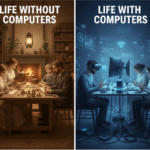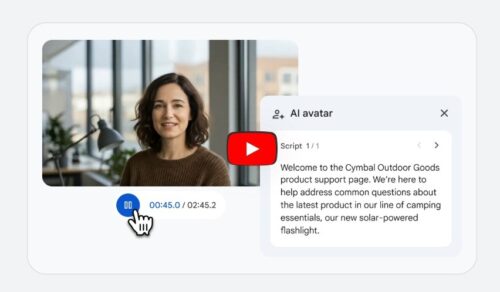Quantum computing sounds like science fiction but today, it is becoming a powerful digital reality. Reshaping industries, solving complex problems, and even challenging how we think about data security.

- 1. What Is Quantum Computing?
- 2. What’s New in 2025?
- 3. What About Security?
- 4. What’s Next?
- In Short
- FAQ: Frequently Asked Questions
- 1. What is quantum computing?
- 2. How is it different from normal computers?
- 3. Where is quantum computing used today?
- 4. Can quantum computers break encryption?
- 5. What is Quantum Key Distribution (QKD)?
- 6. Is India working on quantum tech?
- 7. Can I learn quantum computing as a beginner?
- 8. Will quantum computers replace normal computers?
- 9. What’s next for quantum computing?
What is happening in 2025? Let’s see and break it down in simple terms.
1. What Is Quantum Computing?
In Digital World, Quantum computing is a new type of computer technology. Instead of using regular bits – which are either 0 or 1. It uses special bits called qubits. What makes qubits different is that they can be both 0 and 1 at the same time, thanks to a strange rule in physics called superposition.
Qubits can be connected to each other in a special way called entanglement. This means they can work together and share information instantly, even if they are far apart.
Because of these unique features, quantum computers can solve some problems much faster than normal computers – especially one that deal with huge amounts of data or complex calculations.
2. What’s New in 2025?
Some exciting new developments have made the news
- Google’s “Willow” Processor: With 105 qubits. It is pushing the boundaries of fault-tolerant quantum computing.
- Microsoft’s Topological Qubits: These are designed to be more stable and reducing errors during computing.
- D-Wave’s Qubits Japan 2025 Conference: Held in Tokyo, this event showcased real-world quantum applications from AI to logistics.
- Hybrid Quantum-Classical Systems: Companies like Amazon and NVIDIA are blending quantum processors with classical supercomputers to solve real-world problems faster.
3. What About Security?
Quantum computers are so powerful. They could break today’s data protection methods. That’s why experts are building new security systems that even quantum machines can’t hack.
One such method, Quantum Key Distribution (QKD), uses light particles to send secret codes. If someone tries to spy, the system detects it instantly.
4. What’s Next?
Looking ahead, quantum computing will likely transform as below.
- Healthcare: Faster drug discovery and personalized treatments.
- Finance: Smarter trading strategies and risk modeling.
- Artificial Intelligence: More powerful models and faster training.
- Climate Science: Better predictions and disaster planning.
Furthermore, India is making good progress in quantum technology. It’s working on sending messages in a super secure way and even testing quantum teleportation.
The goal is to build a quantum internet by 2030
In Short
Quantum computing is more than just a fancy term, it is changing the world. It is helping solve big problems and making online security stronger. Even though there are still some challenges, new ideas are coming fast.
So, whether you love tech, are still learning, or just curious, this is the right time to dive into quantum. The future isn’t far away – it’s already happening.
FAQ: Frequently Asked Questions
1. What is quantum computing?
Quantum computing is a new type of computer technology. Instead of using regular bits – which are either 0 or 1. It uses special bits called qubits. What makes qubits different is that they can be both 0 and 1 at the same time, thanks to a strange rule in physics called superposition.
2. How is it different from normal computers?
Traditional computers use bits (0 or 1). Quantum computers use qubits, which can do many calculations at once. Superposition and Entanglement makes them faster for certain tasks like simulations, optimization, and cryptography.
3. Where is quantum computing used today?
- Drug discovery
- Financial modeling
- Climate prediction
- Cybersecurity
- AI and machine learning
4. Can quantum computers break encryption?
Algorithms like RSA and ECC could be cracked by quantum machines. That’s why researchers are building post-quantum cryptography – new security methods that even quantum computers can’t hack.
5. What is Quantum Key Distribution (QKD)?
QKD is a way to send secret messages using light particles (photons). If someone tries to spy, the system detects it instantly. It’s one of the safest ways to share data.
6. Is India working on quantum tech?
India is making strong progress in quantum communication and teleportation, aiming to build a quantum internet by 2030Yes,
7. Can I learn quantum computing as a beginner?
Yes! Start with basic physics and math, then explore online courses on quantum mechanics and programming tools like Qiskit or Cirq. Many platforms now offer beginner-friendly tutorials.
8. Will quantum computers replace normal computers?
Not completly. Quantum computers are great for specific tasks, but classical computers are still better for everyday use. In the future, we’ll likely use both together in hybrid systems.
9. What’s next for quantum computing?
We’ll see more practical uses, fewer errors, and easier access to quantum computers online. The big changes in quantum tech are just beginning.




